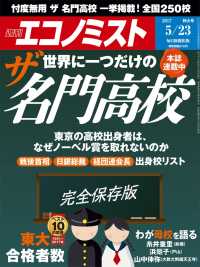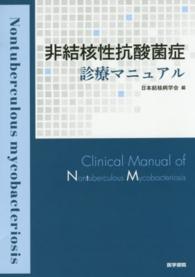- ホーム
- > 洋書
- > ドイツ書
- > Social Sciences, Jurisprudence & Economy
- > Social Sciences
- > social sciences in general
Full Description
How does automation affect us, our environment, and our imaginations? What actions should we take in response to automation? Beyond grand narratives and technology-driven visions of the future, what more can automation offer?
With these questions in mind, The De Gruyter Handbook of Automated Futures provides a framework for thinking about and implementing automation differently. It consolidates automated futures as an inter- and transdisciplinary research field, embedding the imaginaries, interactions, and impacts of automation technology within their social, historical, societal, cultural, and political contexts. Promoting a critical yet constructive and engaging agenda, the handbook invites readers to collaborate with rather than resist automation agendas. It does so by pushing the agenda for social science, humanities and design beyond merely assessing and evaluating existing technologies. Instead, the handbook demonstrates how the humanities and social sciences are essential to the design and governance of sustainable sociotechnical systems. Methodologically, the handbook is underpinned by a pedagogical approach to staging co-learning and co-creation of automated futures with, rather than simply for, people. In this way, the handbook encourages readers to explore new and alternative modes of research, fostering a deeper engagement with the evolving landscape of automation.








